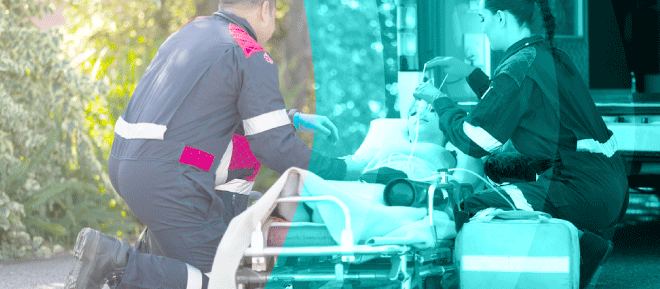
20 Oct Emergency medical service responders reflect on the pandemic: Interventions in Israel and Spain – Part I
How did EMS responders in different countries, positions, and life stages experience an unprecedented health crisis?
In June and July 2023, COVINFORM partners Magen David Adom (MDA: https://www.mdais.org/en) and S.A.M.U.R. Proteccion Civil (SAMUR: https://www.madrid.es/samur) conducted participatory interventions to explore this question. Specifically, the partners organised workshops with both paid staff and volunteers in Tel Aviv and Madrid, with the objective of:
- Validating the COVINFORM research findings and giving responders a sense of participation and ownership in European Commission research and innovation;
- Assessing differences in the way paid and volunteer responders in different countries and age groups experienced the pandemic; and
- Gaining insights into vaccination campaigns, particularly regarding campaign communication to vulnerable groups.
The workshops provided an opportunity to experiment with innovative participatory methods, as well as yielding novel data on EMS responder experiences and vaccination campaigns. This blog post focuses on the former topic, while a follow-up post focuses on the latter.
Participatory methods as a means of validating qualitative research
The workshops involved 60 responders in total across both sites: 20 from SAMUR and 40 from MDA. The groups were split between volunteers (N=32 total) and paid staff (N=28), as well as between those under 30 years old (N=34) and those over 40 (N=26). These age ranges were chosen because in the experience of the workshop organisers, life stage impacts priorities in complex ways: e.g., under-30s are often new parents, while over-40s are often faced with the initial onset of age-related health issues (as well as elder-care responsibilities, etc.). Methodologically, the workshops adopted an innovative participatory approach inspired by the concept of positional voting:
- First, each workshop was split into two sub-groups based on either age or paid/volunteer status (depending on the composition of each workshop group).
- The sub-groups were presented with various COVINFORM research findings written on cards. Each participant was given 50 “points”, which they could distribute among the findings to rate their perceived importance.
- The participants discussed the way they assigned their points, and tried to reach consensus on how to distribute 50 points together as a sub-group.
- The sub-groups then came together in a plenary session, where they presented their prioritization of findings and tried to reach consensus on a common prioritization, discussing any disagreements that arose.
- Finally, each participant completed an individual questionnaire on the topic of mental well-being (derived from a survey conducted in the NO FEAR project: https://no-fearproject.eu/).

Documenting the workshops with photographs and memos allowed the organisers, MDA and SAMUR, to conduct a systematic analysis by age, paid vs. volunteer status, and country. This revealed a number of shared stories and priorities – but also important differences, which speak to the way life stages can mediate the experience of a health crisis.
Responders reported stress burdens and adverse health impacts; those under 30 emphasised the psychological dimension, while those over 40 named a wider range of challenges
In both countries, responders faced an increase in workload and stress during the pandemic. Work-related stressors include strict instructions and safety measures, long working hours, a continuous need for vigilance and concentration, the need to perform new tasks without proper training, and reduced social contact. Responders in Israel furthermore reported that they tended to distance themselves from their own families for fear of infecting them. Many carried their traumatic experiences home, which sometimes led them to isolate themselves emotionally.
For responders under 30, mental well-being was a particular challenge. Due to their positions at the frontline of the pandemic, many experienced fear, helplessness, and burnout. Heavy responsibilities, the trauma of caring for critically ill patients, a low level of control over the work environment, and difficulty maintaining work-life balance could sometimes lead to demotivation. Without discounting the psychological dimension, responders over 40 sometimes placed more emphasis on other health impacts: some suffered from reduced access to preventative health care during the pandemic, thus aggravating existing long-term problems, or even allowing new ones to emerge. Due to the duration and severity of the pandemic, some hesitated to enter hospitals or visit their GPs when ill, resulting in a deterioration in their overall health.
EMS responders also offer insight into vaccination campaigns – and could be better utilised as a vector for risk communication
The other main topic addressed in the workshops was vaccination. As front-line practitioners, EMS responders offered unique insight into the way vaccine communication campaigns were conducted, particularly among vulnerable groups. A follow-up blog post delves into this topic, as well as offering recommendations for how to better leverage EMS responders’ community access and trust during future health crises.
Author: Dr. James Edwards, SINUS-Institute
